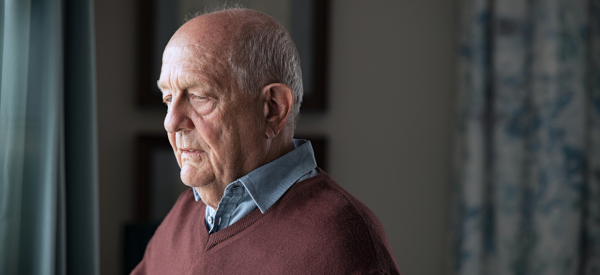Getting around can be difficult for seniors especially when mobility is an issue. And when going from point A to B is a challenge that makes it tough for older loved ones to maintain a healthy diet because they have no way to access they food that they need. Many people are not aware that hunger and under-nutrition are slowly becoming an epidemic in the U.S. It was reported by the National Foundation to End Senior Hunger that in 2014, 15.8 percent of the population or 10.2 million older Americans were threatened by hunger, while And 3.7 million seniors are
Read More
Freedom Home Care Celebrates Senior Independence Month
FEBRUARY IS NATIONAL SENIOR INDEPENDENCE MONTH Freedom Home Care celebrates 20 years of helping seniors HIGHLAND PARK, IL (FEBRUARY 2017) – Freedom Home Care is celebrating National Senior Independence Month this month and 20 years of helping seniors live happy and healthy lives in the comfort of their own homes. According to the American Health Association, this month was established to help seniors remain in control of their daily lives and to encourage seniors to take the opportunity to evaluate their current living situation, and determine whether or not adjustments could be made to create a better lifestyle. This is the opportunity to
Read More
February is National Senior Independence Month
Age can bring on a myriad of emotions, fears and concerns. And even if you’re are able to fully function on your own or are receiving in-home care or outpatient services, every senior deserves to live their life as independently as possible. In efforts to help promote a more self-sufficient lifestyle among older Americans, February has been designated National Senior Independence Month. During the “golden” years, the journey towards greater independence can include everything from healthy eating habits, physical fitness and proper medical care to accident prevention and creating new experiences. Everything you do has an impact on you lifestyle
Read More
Staying Active in Your Golden Years
Staying fit is easier as we age when we make it a lifestyle choice. When exercise is a part of your senior’s everyday routine, not only do they develop the habit of working out, they’re much less likely to stop or interrupt it when it becomes a habit. But how do you help your loved one begin a fitness regimen, especially when they’re experiencing the aches and pains associated with arthritis and other conditions that affect health and mobility? FHC suggests consulting a doctor before beginning any work out plan. A brisk walk might be a good starting point
Read More
How to be a Good Caregiver and Take Care of Yourself
The demands of a caregiver are often times greater than we realize when we start out. Not only are you meeting the needs of someone else by providing home care services like preparing a care plan, evaluating medical needs, monitoring medication, preparing meals, and providing transportation – you’re also in charge of taking care of yourself. But many times, those who care for other often forget to help themselves. And one of the first rules of caregiving is that those in your care benefit most when you’re at your best. Providing personalized elder care for a loved one, like a
Read More
When Friends Become Caregivers
As the population of aging adults increases in the U.S., the role of caregiver has become increasingly more important. Research shows that seniors are the fastest growing segment in the country – of those, the number of people 85 and older is outpacing any other age group. And soon, baby boomers will come of age causing a rapid increase in people aged 65-84. It’s inevitable that as Americans get older, the number or people with long-term health conditions rises and the number of people requiring personalized elder care goes up with it. Today, over 50 percent of Americans aged 65
Read More
Brain Challenge Test Could Predict Alzheimer's
What if there were a way to spot Alzheimer’s years before it was ever diagnosed? Currently, biomarker tests can help detect the disease twenty years before its onset. The procedure measures abnormal levels of the proteins beta-amyloid and tau, in spinal fluid. These proteins form plaques and tangles which researchers believe contribute to the development of Alzheimer’s. Alternatively, beta-amyloid and tau also help determine if those with underlying factors may be at risk of developing more serious forms of the disease. In addition to biomarker testing, scientists are using brain imaging to record images of any changes in the brain.
Read More
Chair Yoga for Those Who Suffer From Arthritis
Chair Yoga is quickly becoming a preferred method of relieving some of the soreness, aches and pains associated with arthritis. Often used by people who wouldn’t otherwise be able to perform more traditional moves, Chair Yoga is one of the more gentle forms of the exercise that’s practiced by sitting on a chair or standing up using a chair as support. While it’s not yet recognized as a distinct type of Yoga like Anusara or Ashtanga, Chair Yoga has been approved by the Arthritis Foundation and is recommended by many physicians for patients suffering from the condition. It may also
Read More
Beginning Tech Fluency in Seniors
Freedom Home Care believes that technology is the primary mode of communication for our generation today. And more and more, seniors are taking advantage of the different ways gadgets and devices allow them the convenience of staying connected to the loved ones in their lives. From 2009 to 2011, the number of seniors using the internet age 65 and older grew 150 percent – the biggest increase among demographic groups, according to a study conducted by the Pew Research Center. When the seniors that were studied used the Internet, 71 percent went online every day, while 34 percent used social
Read More
January is Glaucoma Awareness Month
It’s important to get regular eye exams to protect your vision. And because January is Glaucoma Awareness Month, there’s no time like the present to have your eyes checked. Many people are unaware how prevalent Glaucoma is in the U.S. From babies to seniors, whether or not you receive in-home care services or personalized elder care – everyone is at risk for the disease. Its most common form, open-angle glaucoma, shows virtually no symptoms before causing blindness. Today, over three million Americans have been diagnosed with the disease and experts say that by 2030, that number will increase by 58
Read More




